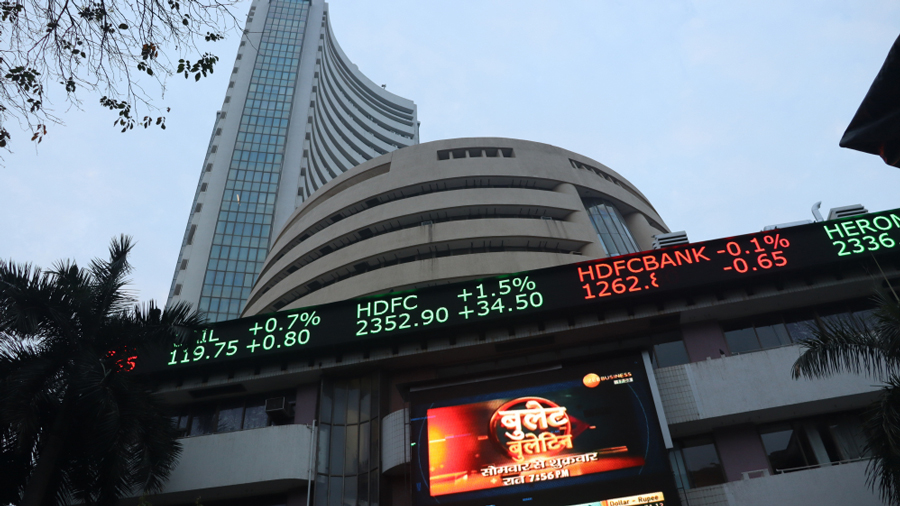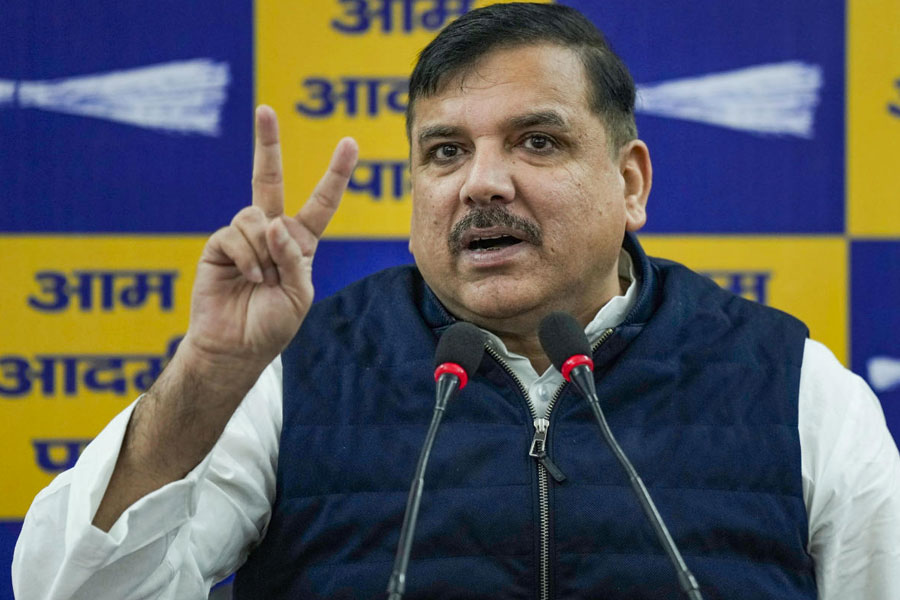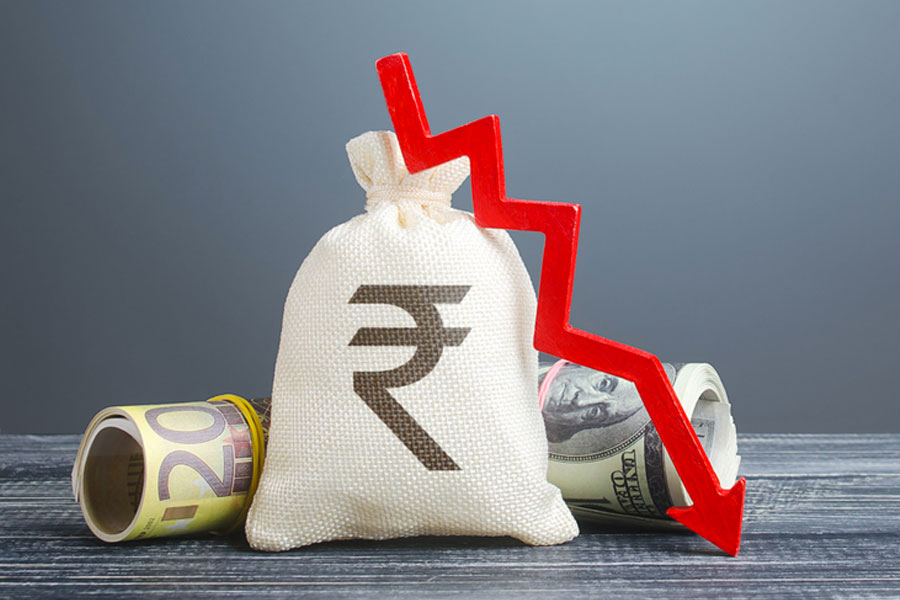The market capitalisation of all the listed stocks on the Bombay Sock Exchange (BSE) on Monday crossed the $3-trillion mark for the first time, raising questions again whether the unnatural exuberance on the Street reflected a market that was out of touch with the stark realities of a Covid-stricken economy punctuated by extreme job losses, plunging government revenues and the grim prospect of a very large number of people sliding back into poverty.
Experts said the $3-trillion milestone must be seen in the context of expectations of a sharp pickup in growth with coronavirus cases on the decline and states opening up from next month. Besides, the fourth-quarter results of companies have so far not delivered any major negative surprises.
On Monday, the market capitalisation of the companies listed on the Bombay Stock Exchange (BSE) settled at Rs 218 lakh crore ($3 trillion) after crossing Rs 219 lakh crore during the day. “Market capitalisation of equities of listed companies on @bseindia reached $3 trillion intra-day for the first time ever. A great milestone on a long journey,” BSE’s MD and CEO Ashishkumar Chauhan tweeted. The benchmark Sensex rose 111.42 points, or 0.22 per cent, to close at 50651.90 after rising 317.11 points to 50857.59 in intra-day trades.
Reality check
The gains in stock prices have reignited discussions on whether the markets are detached from reality with a section of analysts asserting the valuations are not justified by the ravages of the coronavirus on the economy and the gains largely fed by ample liquidity.
But another section claimed the markets were “discounting the future’’, focussing more on what “tomorrow holds for the economy and corporate India’’.
“Yes, there are so many negative news or factors such as a large number of Covid deaths, unemployment. While some of the industries are affected, one must look at the current situation in a holistic manner as well,” says Arun Kejriwal, director, KRIS Research.
“The performance of corporate India has not been adversely affected as companies have been able to cut down on major expenditures such as travel, electricity and real estate.”
He said most of the global companies are looking for one more supplier other than China and this can benefit India. “There is hope around the corner and our economy can bounce back sharply by posting a double digit growth. Given such an outlook, we must be ready for the rally to continue and in all probability, the benchmark indices could hit a new lifetime high in June,’’ he added.
Vinod Nair, head of research at Geojit Financial Services, said a steady decline in fresh cases and hopes of the lockdown coming to an end have influenced the domestic market to extend its gains.
He pointed out that positive quarterly earnings and easing asset quality woes have helped banking stocks to attract buying interest, while mid- and small-cap stocks have outperformed.
Margin levy
Stock brokers’ association Anmi has urged market regulator Sebi to reconsider the proposed 100 per cent levy on intra-day trade peak margins as the higher margin will reduce hedging opportunities.
In a letter to Sebi on May 15, the Association of National Exchanges Members of India (Anmi) said that there is a great disconnect between what is being collected from clients and what needs to be collected vis-a-vis the attendant risks.











